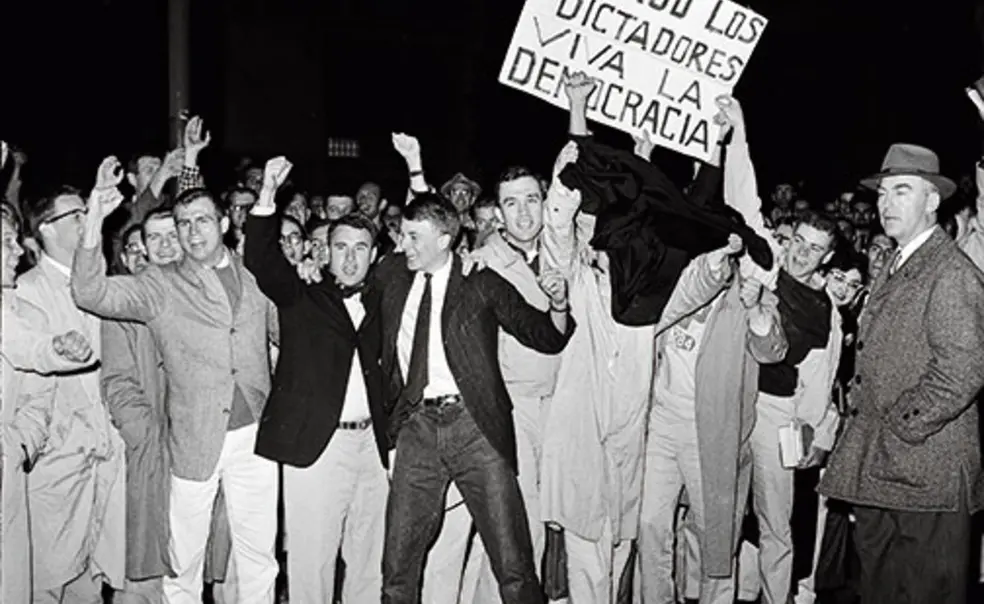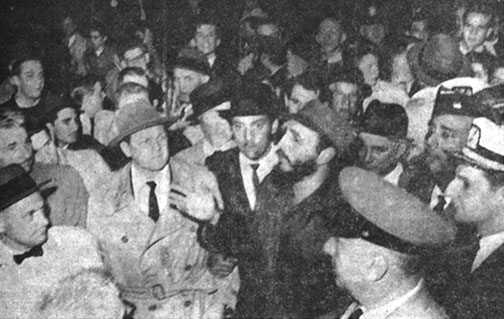Young Fidel Castro briefly was the darling of many Americans, who were thrilled that the charismatic revolutionary had ousted a dictator and promised democracy throughout Latin America. A crowd of 1,500 shouted “¡Viva Fidel!” when he visited the University during a U.S. tour, three months after seizing power in Cuba.
Three hundred invited guests gave the 32-year-old guerrilla fighter a standing ovation when he spoke in Corwin Hall at a conference of the American Civilization Program. He and his entourage were a strange sight in the Ivy League, with their combat fatigues and disheveled beards.
In a quiet voice, the former lawyer spoke of freedom and lofty ideals for more than an hour. When someone asked why no elections had been scheduled, he promised to hold them “as soon as possible, so that we can be an example of democracy, equality, and social justice.”
The Eisenhower administration worried he might be a Communist. “I advise you not to worry about Communism in Cuba,” Castro reassured the Princetonians — his only “ism” was humanism.
Police whisked Castro out the back door and into a limousine that turned downhill on Washington Road. But the revolutionary ordered his driver to stop, and he leapt out to address the undergraduate throng.
Elated that night was Paul Taylor ’60, who had invited Castro to campus on behalf of Whig-Clio. Today, 55 years into the Castro dictatorship, the former U. S. ambassador to the Dominican Republic sees him differently: “He didn’t turn out to be what we hoped he would be.”













No responses yet